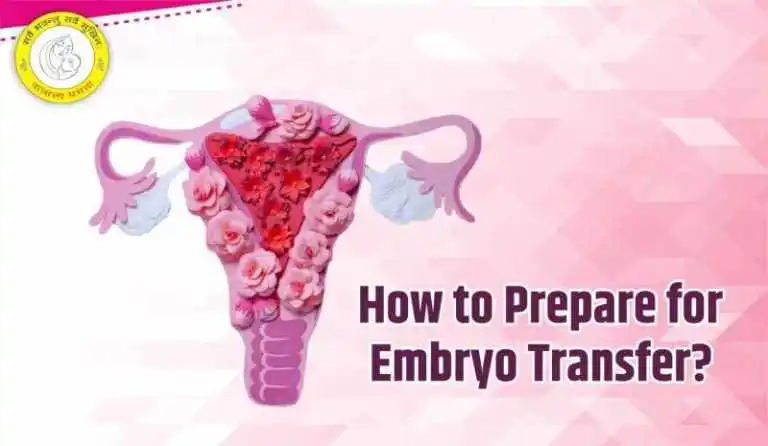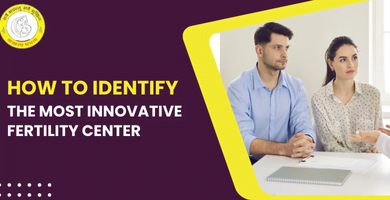How to Prepare for Embryo Transfer?

Each path to embryo transfer is different, but all require planning, injections, and appointments. There are also ups and downs along the infertility rollercoaster. The embryo transfer procedure is the last step on a long road toward building your family. Knowing what to expect and how to prepare for it can reduce your anxiety and increase your chances of success.
What is Embryo Transfer? Understanding the Process
In this Article
The process of transferring embryos from one or more cultures back into the womb is called embryo transfer. One embryo will be transferred, while others with potential will be frozen. If you are going through a new cycle, your transfer may take two to five days (sometimes six days) after egg collection. The apricity advisor will inform you when it is likely to occur. You’ll need to have taken medication for a short time to prepare your womb for implantation.
The embryo transfer procedure involves selecting an embryo and then transferring it into the womb via a flexible tube that is inserted through the vaginal and cervix. embryo transfer procedure is usually quick and painless and often performed under ultrasound guidance.
How to Prepare for Embryo Transfer: 9 Essential Steps
Don’t be nervous if you are preparing to transfer your first embryo. You’ll be in the best, most experienced hands. If you use frozen embryos, embryo transfer can take up to three days from fresh egg retrievals. It will take between three and five days for embryo transfer procedure.
1. Stay Consistent with Medications
Make sure you keep track of your medications and make sure to take them regularly. Ask your doctor whether you should take over-the-counter medicines and supplements like Vitamin D.
2. Adopt a Healthy Diet
Focus on a high-fat, low-carb diet to reduce inflammation and support reproductive health. Include nutrient-rich foods like leafy greens, nuts, and lean proteins.
3. Explore Holistic Therapies
Look into holistic therapies. Women undergoing IVF treatment can increase their chances of having a baby by as much as 65% using acupuncture, yoga, and massage.
4. Rest and Relax
Take plenty of time to rest before and afterward. Allow your body to rest and avoid strenuous activities.
5. Avoid Extreme Temperatures
Avoid extreme temperatures that can damage your abdomen or uterus. This can destabilize your reproductive system and affect the success of your embryo transfer.
6. Stay Hydrated
To reduce inflammation in your body, eat a high-fat and low-carb diet: for your reproductive system and tract.
7. Avoid Harmful Chemicals
Avoid chemicals found in nail polishes, shampoos, and cleaning products.
8. Plan Ahead
You can plan by packing your bag and deciding when you will leave the next day.
9. Stay Positive
Bring a full bladder. Get plenty of fluids for ultrasound-guided transfers!
Common Symptoms After Embryo Transfer
- Mild cramping
- Light spotting
- Bloating
- Fatigue
These symptoms are normal and typically subside within a few days. However, if you experience severe pain or heavy bleeding, contact your doctor immediately.
* Read the next article: Why Fertility Counselling is More Important?
Tips for a Successful Embryo Transfer
Many factors influence the success of embryo transfers, including embryo quality and viability, the number of embryos transferred, and the condition of the uterus. External factors can influence the outcome of treatment. Let’s look at some ways to maximize your chances of success.
1. Rest After the Procedure
After the procedure, it is recommended that you rest for at least 2 hours. You can use the bathroom if you want. You can rest assured that your embryos won’t fall out if you pee or sneeze. After your procedure, you can return to work or normal activities. Avoid heavy lifting and vigorous exercise.
2. Avoid Sexual Intercourse
Uterine contractions can result from sexual intercourse, which may affect embryo implantation in the umbilical cord. After your pregnancy test results are known, you may experience sexual intercourse.
3. Stay Hydrated
Water is essential for cell function. The cells of the uterine walls must be healthy to allow implantation. Drinking plenty of water is a simple way to maintain a healthy uterus.
4. Avoid Swimming and Hot Baths
You should not dip in the tub or a swimming pool immediately after your procedure, as you could get infected.
5. Continue Progesterone Supplements
You must continue taking the progesterone until your pregnancy test is over. Progesterone prepares the uterus for the embryo’s arrival (by thickening your endometrium). Progesterone could be used to prevent miscarriages and early pregnancy bleeding.
Conclusion
Diwya Vatsalya Mamta IVF Center in Patna wishes you the best if you plan to transfer an embryo. It’s the culmination of much hard work. It can be challenging to wait for the outcome and anticipate it. But remember that you are doing all you can, and you will be fine.
FAQs
What to do after embryo transfer to increase success
Relax and rest: While complete bed rest isn’t necessary, it’s important to avoid strenuous activities in the days following the transfer.
Maintain a healthy lifestyle: Eat a balanced diet, stay hydrated, and get enough sleep.
Manage stress: Practice relaxation techniques like meditation or yoga.
Follow your doctor’s advice: Adhere to any specific recommendations given by your fertility specialist.
How many days after embryo transfer does implantation occur
Implantation typically occurs between 6 and 12 days after embryo transfer. However, this can vary from person to person.
How many embryo to transfer for IVF
The number of embryos transferred depends on several factors, including your age, the quality of the embryos, and your medical history. Your doctor will recommend the best number for you.
How to get ready for pregnancy
Preconception care: Visit your doctor for a preconception checkup to assess your overall health



